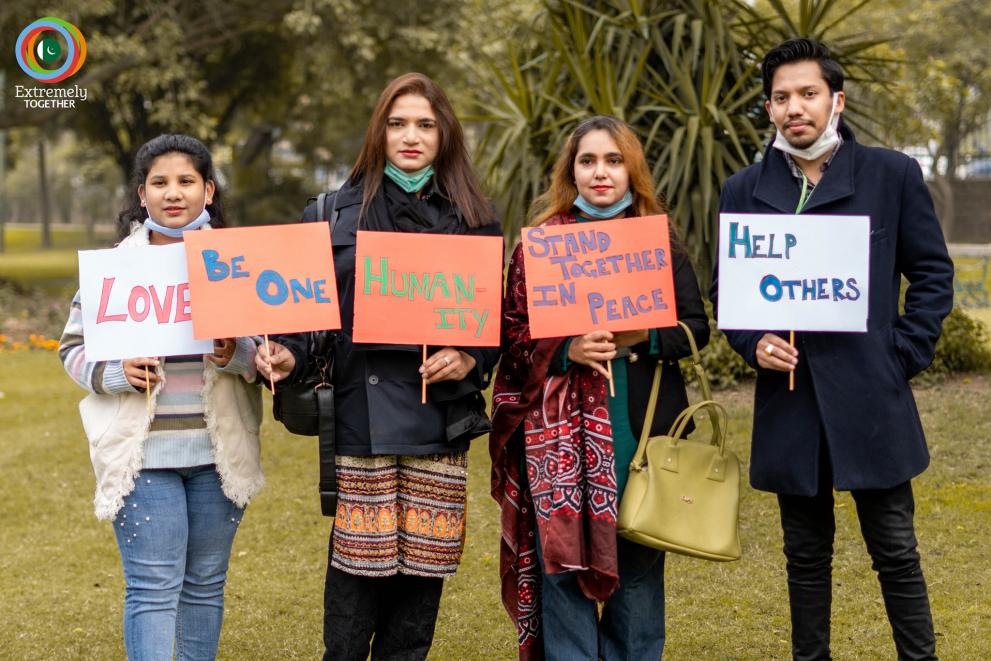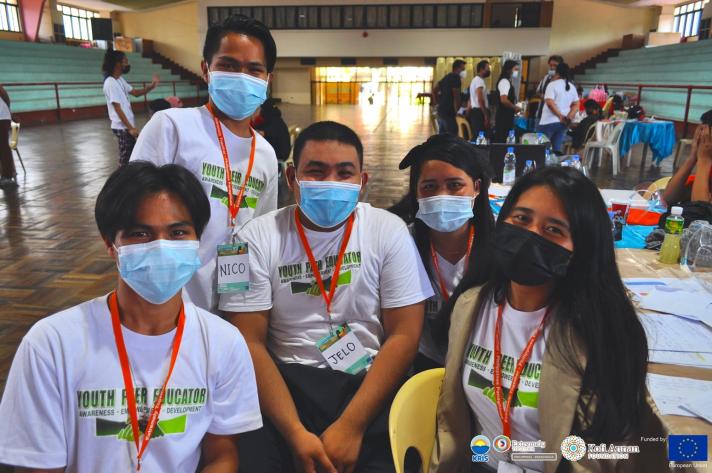
Urban young people from Bangladesh, Pakistan and Philippines are learning ways to prevent violent extremism and how to foster tolerance and peace thanks to the EU financed project “Leading the way to Peace - Youth Together for Social Cohesion”.
Over the past year, several youth groups have engaged and connected people from diverse groups. They helped countering and preventing violent extremism by promoting activities engaging youth in interfaith tours, teaching farming to former combatants and training webinars.
In Pakistan, young people have used creative arts-based solutions, such as organizing rap battles, to bring artists from different communities together to bridge existing silos. At the same time, in Lahore, Peshawar, and Karachi, interreligious tours of holy sites and interfaith sports events across Pakistan have given people the space to learn about each other and dismiss divisive and hateful narratives that promote violence.
In the Philippines, over 400 young people coming from urban areas affected by poverty, conflict, and terrorism have taken part in a training on understanding the context of conflict and the reality of violent extremism in their country. The participating youth also came up with ideas on how to bring hope and promote peace themselves. Selected proposals profited from seed grants for the young people to bring their innovative ideas of combating violent extremism to life.
Juanquine Carlo Castro, President of Youth Service Philippines non-governmental organisation, shared that the training strengthened his plans to promote peace in a region that has been affected by violence for decades.
"Being a communication student, I plan to be able to create various social media advocacies focused on educating the youth on what violent extremism is and what they can do as young peacebuilders to make a change in terms of peace and development. Moreover, I hope to talk with different policymakers and suggest various ways to achieve peace in various areas and remove violent extremism in the country," Castro said.
Meanwhile, Ammar Mama-o Cayongcat, a young leader from a social enterprise added: "Regardless of background and setting aside differences, peace is surely attainable.... Especially in conflict-driven areas, the role of the youth taking a collective stand in promoting peace through various start-ups would really create an impact”.
In Bangladesh, young people have come with the initiative to enable young people to speak more comfortably about their views, encouraging open and fair debates in schools. Bangladeshi youth are pushing the educational system to break taboos and develop platforms for young people to express their views.
The activities in the three countries were developed based on the results of the research about the key drivers of violent extremism, as well as youth vulnerabilities in Bangladesh, Pakistan and the Philippines.
“Leading the way to Peace - Youth Together for Social Cohesion” is implemented under the EU’s Instrument contributing to Stability and Peace by the Kofi Annan Foundation’s initiative “Extremely Together”, in partnership with KRIS in the Philippines, CYAAD in Pakistan and GCERF in Bangladesh.
More:
Conflict prevention, peace and stability
Preventing violent extremism in South and Southeast Asia project
Details
- Publication date
- 13 September 2021

